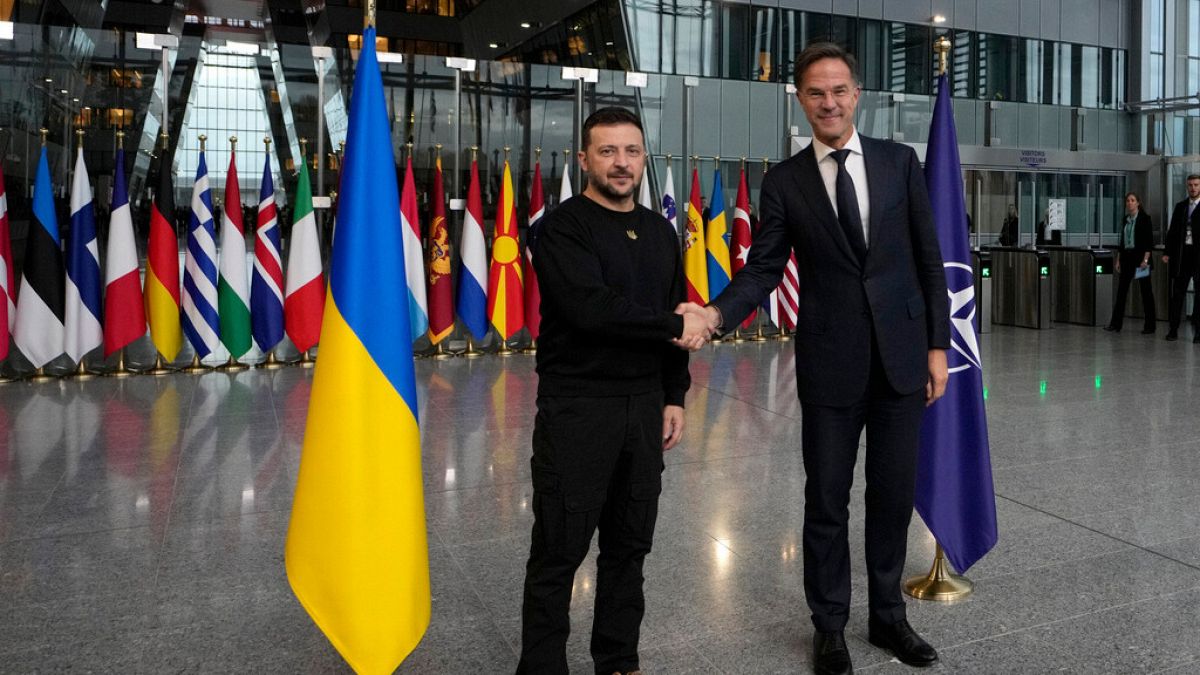Ukrainian President Volodymyr Zelenskyy emphasized the importance of unity within NATO for Ukraine’s strength during a meeting with NATO Secretary-General Mark Rutte. Zelenskyy highlighted that the strength of Ukraine is not just dependent on weapons but also on the unity of NATO members. Rutte reassured Zelenskyy that the alliance would remain united, emphasizing that Ukraine will be a member of NATO in the future. Zelenskyy has been presenting his five-point “victory plan” to Western allies to end the war through negotiations, with a key element being a formal invitation into NATO. Rutte did not provide specifics on when Ukraine would become a NATO member, despite previous declarations that Ukraine was on an “irreversible” path to membership at a summit in Washington.
President Zelenskyy’s visit to Belgium also included meetings with EU leaders as part of his broader tour to promote his “victory plan.” The plan aims to push Russia to end the war through negotiations, with the ultimate goal of securing a formal invitation to join NATO. Zelenskyy’s emphasis on unity within NATO underscores the importance of Western support in Ukraine’s defense against Russian aggression. As tensions in the region continue to escalate, Ukraine is looking to its allies for solidarity and concrete steps towards NATO membership. The EU leaders Zelenskyy met with likely discussed the security situation in Ukraine and potential pathways for further cooperation with the country.
The ongoing conflict between Ukraine and Russia has been a source of instability in the region, with Ukraine seeking support from NATO and the EU to end the war. Zelenskyy’s “victory plan” represents a diplomatic approach to resolving the conflict, emphasizing the need for unity among Western allies. The formal invitation to join NATO is a key component of the plan, but the timing of Ukraine’s membership remains uncertain. Despite assurances from NATO that Ukraine is on the path to membership, there are still logistical and political hurdles to overcome before formal entry into the alliance. Zelenskyy’s meetings with NATO and EU leaders signal a concerted effort to garner support for Ukraine’s security and sovereignty.
The unity within NATO is imperative for Ukraine’s security and defense capabilities, as emphasized by President Zelenskyy during his meeting with Secretary-General Rutte. The alliance’s solidarity is essential for countering Russian aggression and ensuring stability in the region. Zelenskyy’s focus on the “victory plan” highlights the diplomatic efforts being made to resolve the conflict through negotiations. NATO’s commitment to Ukraine’s future membership is a positive development, but concrete steps need to be taken to ensure the country’s integration into the alliance. The meetings with EU leaders further underscore Ukraine’s efforts to strengthen ties with Western partners and advance its security objectives.
In conclusion, President Zelenskyy’s meetings with NATO and EU leaders reflect Ukraine’s commitment to seeking support from Western allies in addressing the ongoing conflict with Russia. The emphasis on unity within NATO and the presentation of the “victory plan” are key steps towards resolving the crisis through diplomatic means. While the path to NATO membership remains uncertain, Ukraine’s determination to secure its future within the alliance is evident. The meetings in Belgium mark a significant moment in Ukraine’s efforts to strengthen partnerships with key allies and enhance its security capabilities. As the situation in the region continues to evolve, Ukraine’s engagement with NATO and the EU is crucial for maintaining stability and countering threats to its sovereignty.











